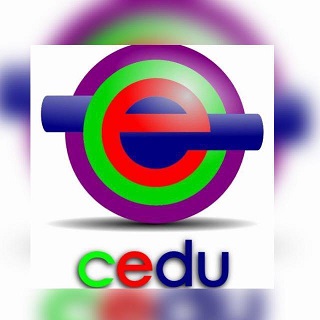TEACHER TRAINING AND EXTENSION STAGE: COLLABORATIVE AND INCLUSIVE PRACTICES IN THE EDUCATION AND HEALTH DIALOGUE
Keywords:
Intersectoriality, Educational Inclusion, Alternative and Augmentative Communication, ASDAbstract
In Brazil, the construction of an inclusive educational system, driven by the dialogue between Human Rights and Education from the 1990s onwards, and consolidated by the National Policy on Special Education in the Perspective of Inclusion in 2008, has fostered the reorientation of pedagogical practices that materialize the assumption of a school for all, in which access, permanence and learning is guaranteed to students with specific educational needs, in particular students with disabilities. Supported in an inclusive perspective, the objective of this work is to narrate how the intersectoral dialogue between education and health, through the sharing of experiences, methodology adopted in the extension internship The Alternative and Augmentative Communication in the mediation of texts for people in the Autism Spectrum, allowed the participants, in a collaborative way, to weave a series of strategies to ensure communication, participation and learning for students with Autism Spectrum Disorder (ASD) enrolled in regular schools. The course took place between July 15 to September 2, in 2019, with a workload of forty (40) hours, alternating between theoretical study and workshops, with a final public of thirty (30) concluding registrants among undergraduate students, professors and professionals in the health and social assistance area. Alternative and Augmentative Communication, was chosen as theme of the course because even though it is a resource of assistive technology with extensive literature on its potentializing role in the communication of people with ASD, it still emerges timidly in the classroom and in teaching practices, it still emerges timidly in the classroom and in practices, as evidenced the dialogue with the training participants.
Downloads
References
ALMEIDA, N.M.S. Formação de enfermeiro e reorientação do modelo de assistência à saúde: Um estilo cartográfico. Dissertação [Mestrado] – Programa de Pós-Graduação em Enfermagem e Saúde, Universidade Estadual do Sudoeste da Bahia – UESB, Jequié, Bahia, 2012.
ANDRADE, E.R.S. Equipe multiprofissional no Centro de Atendimento Educacional Especializado (CAEE) em uma instituição especializada de Jacobina/Ba: Tecendo cuidados para alunos com TEA. Mestrado Profissional em Educação e Diversidade – MPED, Jacobina, 2019. Disponível em: https://sucupira.capes.gov.br/sucupira/public/consultas/coleta/trabalhoConclusao/viewTrabalhoConclusao.jsf?popup=true&id_trabalho=8296767
BERSCH, R. Introdução à Tecnologia Assistiva. Porto Alegre, 2017. Disponível em: https://www.assistiva.com.br/Introducao_Tecnologia_Assistiva.pdf. Acesso em: 8 abr. 2021.
BRASIL. Comitê de Ajudas Técnicas – CAT. Secretaria Especial dos Direitos Humanos da Presidência da República (CORDE/SEDH/PR), Brasília, Distrito Federal, 2017.
BRASIL. Constituição da República Federativa do Brasil. Brasília, Distrito Federal, 1988. Disponível em: http://www.planalto.gov.br/ccivil_03/constituicao/constituicao.htm . Acesso em: 16 abr.2021.
BRASIL. Declaração Mundial sobre Educação para Todos: Satisfação das necessidades básicas de aprendizagem. Jomtien, Tailândia: UNESCO. 1990. Disponível em: https://unesdoc.unesco.org/ark:/48223/pf0000086291_por . Acesso em: 16 abr.2021
BRASIL. Decreto N°. 7.612, de 17 de novembro de 2011. Institui o Plano Nacional dos Direitos da Pessoa com Deficiência – Plano Viver sem Limite. Disponível em: http://www.planalto.gov.br/ccivil_03/_ato2011-2014/2011/decreto/d7612.htm#:~:text=1%C2%BA%20Fica%20institu%C3%ADdo%20o%20Plano,da%20Conven%C3%A7%C3%A3o%20Internacional%20sobre%20os . Acesso em: 20 abr.2021.
BRASIL. Lei N°. 9.394, de 20 de dezembro de 1996. Estabelece as Diretrizes e Bases da Educação Nacional. Disponível em: http://www.planalto.gov.br/ccivil_03/leis/l9394.htm . Acesso em: 16 abr.2021.
BRASIL. Lei N°. 12.764, de 27 de dezembro de 2012. Institui a Política Nacional de Proteção dos Direitos da Pessoa com Transtorno do Expectro Autista. Disponível em: http://www.planalto.gov.br/ccivil_03/_ato2011-2014/2012/lei/l12764.htm . Acesso em: 16 abr.2021.
BRASIL. Ministério da Justiça. Secretária Nacional dos Direitos Humanos. Declaração de Salamanca e linhas de ação sobre necessidades educativas especiais. 2.ed. Brasília: Corde, 1997.
BRASIL. Política de Educação Especial na Perspectiva da Educação Inclusiva. Ministério da Educação – MEC/SEESP. Brasília – DF, 7 de Janeiro de 2008. Disponível em: http://portal.mec.gov.br/arquivos/pdf/politicaeducespecial.pdf . Acesso em: 16 abr.2021.
CANDAU, V.M.F. Direito à educação, diversidade e educação em direitos humanos, Educ. Soc. Campinas, v. 33, n. 120, p. 715-726, 2012.
CAPELLINI, V.L.M.F; ZERBATO, A.P. O que é ensino colaborativo? São Paulo: Edicon, p. 17-35, 2019.
DELIBERATO, D. Comunicação Alternativa na Educação Infantil: Instrumentos para Aquisição de Competências do Aluno com Deficiência. In: Trilhando Juntos a Comunicação Alternativa. Associação Brasileira de Pesquisadores em Educação Especial, São Paulo, p. 77-95, 2017.
GLAT, R; PLETSCH, M.D. Organização curricular e processo de aprendizagem de alunos com necessidades especiais no ensino regular. In: Inclusão escolar de alunos com necessidades especiais. Universidade do Estado do Rio de Janeiro – UERJ, 2.Ed. Rio de Janeiro, p.69-106, 2012.
KASSAR, M. de C. M. Política de educação especial no Brasil: escolha de caminhos. In: LAGO, D. C. Ensino colaborativo: benefícios pedagógicos e sociais para os alunos com deficiência intelectual. UFSCar/PPGEEs. 36a Reunião Nacional da ANPEd. Goiânia-GO, 2013.
MENDES, E. G. A radicalização do debate sobre inclusão escolar no Brasil. Revista Brasileira de Educação. V.11, n.33, 2006.
OGASAWARA, J.S.V. O conceito de aprendizagem de Skinner e Vygotsky: Um diálogo possível. Biblioteca Central da UNEB, Salvador, 2009.
PAIM, J. S. Saúde, política e reforma sanitária. Salvador: CEPS-ISC, p. 446, 2002.
PEREIRA, T. T. S. O; BARROS, M. N. S; AUGUSTO, M. C. N. A. O Cuidado em Saúde: o paradigma biopsicossocial e a subjetividade em Foco. Revista Mental – ano IX – 17 – Barbacena-MG – jul./dez, p. 523-536, 2011.
WALTER, C.C.F. A Comunicação Alternativa no contexto escolar: Inclusão de pessoas com autismo. Universidade do Estado do Rio de Janeiro – UERJ, Rio de Janeiro, 2000.
Published
How to Cite
Issue
Section
License
Copyright
The submission of originals to Cenas Educacionais (Educational Scenes - CEDU) implies the transfer, by the authors, of the publication rights. The copyright for the manuscripts published in this journal is the author(s), with CEDU rights over the first publication. Authors(s) may only use the same results in other publications by explicitly indicating CEDU as the means of the original publication.
Creative Commons License
Except where otherwise specified, the terms of a Creative Commons Attribution-ShareAlike 4.0 International License license apply to the material published in this journal, which allows unrestricted use, distribution and reproduction in any medium provided the original publication is correctly cited.






 This work is licensed with a License
This work is licensed with a License 